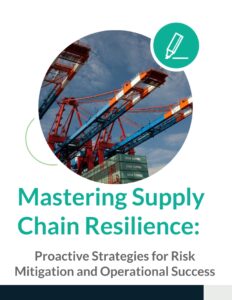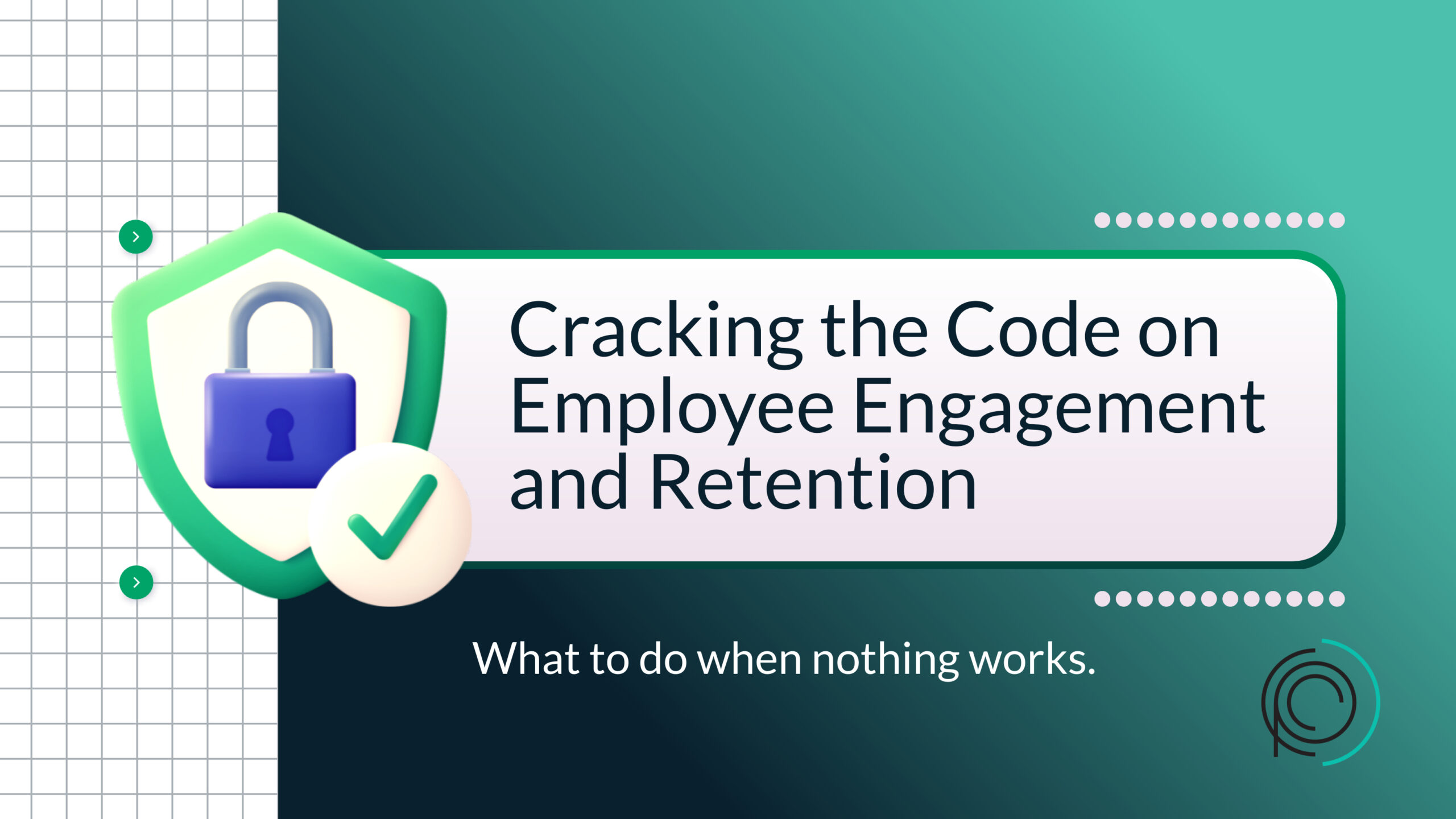Choosing the Right Consultancy: Beyond Brand Name—Why Personalized Partnerships Drive Operational Success
When a company makes the strategic decision to prioritize and enhance operational efficiency, including initiatives such as upgrading technology or undertaking process improvements, it often engages the expertise of a consultancy. The selection of a consultancy partner is crucial, and while opting for a well-established consultancy with a strong brand presence may seem like the logical choice, there are various factors to consider beyond just the size and reputation of the consultancy. It’s essential to delve deeper into the consultancy’s expertise, experience, and alignment with the company’s specific needs to ensure that the partnership delivers optimal results.
It might sound counterintuitive, but consultancy clients have consistently observed that many large consultancies are falling short of delivering the expected results. This trend raises questions about why this may be occurring, prompting a closer look at the dynamics between clients and consultancies. To address this, it is crucial to explore alternative approaches that prioritize effective communication, tailored solutions, and a deep understanding of the client’s specific needs and goals. By embracing a more personalized and collaborative consulting model, clients can navigate challenges more effectively and achieve greater success in their business endeavors.
Where large consultancies let you down
From our experience, we have found that larger consultancies tend to deliver disappointing results for a variety of key reasons. The scale of operations in bigger firms sometimes leads to a lack of personalized attention to each client’s unique needs, resulting in generic solutions that may not fully address specific challenges. Additionally, the hierarchical structure of larger consultancies can slow down decision-making processes, hindering timely and agile responses to clients’ evolving requirements.
Sub-par deliverables
Nothing is more important than deliverables in a consulting project — they’re what you’re paying for, after all. Yet large consultancies often fail to deliver here due to the lack of a solid process to understand an organization and deliver concrete solutions on how to improve it. The firm usually stands on its historical name and reputation rather than mastering deliverables that will move the needle for its clients.
This might sound like a bold claim, but when you think about it, most of the greatest innovations in management haven’t come from big brand names — Industry Week estimates that 70% of consultant writers (from another publication) came from smaller or boutique consultancies. As a result, the larger firms fail to give truly innovative solutions. Below is one reason why this may be the case.
Work assigned to college grads
Large companies often establish extensive recruitment programs tailored for college graduates. These initiatives aim to nurture and develop the upcoming cohort of consultants. However, it is important to note that businesses are cautious about being the first to test unproven methods. Instead, they aspire to be the beneficiaries of well-prepared professionals who have been through rigorous training.
Unfortunately, larger consultancies tend to send college graduates on projects — and no matter how intelligent they are or how much potential they might have, they simply lack the experience to execute properly. Considering big consultancies often sell themselves based on the names of their most prominent consultants, who seldom work on the projects at all, it can leave a bitter taste in the mouth. Not to mention the poor quality of work. Remember the managers you are facing off with are not the people doing the work, instead, it’s typical college grads or employees with 5 years or less doing most of the heavy lifting. It’s similar to when a senior manager says “I implemented_____” when in reality they didn’t implement anything, additionally they will not fully understand the functionality of the software like a user will.
Expensive
It would be (somewhat) understandable to be left with less-than-stellar deliverables and a bunch of young adults managing your projects if you knew that you’d at least got a bargain. Yet often, the opposite is true — larger consultancies are often the most expensive, and frequently carry multi-million-dollar price tags.
Nothing to execute on. More often than not, a project with a large consultancy ends with a PowerPoint presentation outlining its findings, along with a strategy. It’s interesting to note that many of our clients have done very little with those PowerPoint presentations and recommendations. The lack of follow-through could be due to a variety of reasons, such as shifting priorities, resource constraints, or perhaps a disconnect between the proposed strategies and the practical implementation within their organizations.
- They didn’t know where to start
- Didn’t have the capacity
- Don’t have the internal knowledge to proceed
- The plan wasn’t clear and actionable for them to feel they would be successful
While this can be of some use, it’s the execution that many companies struggle with. Implementing strategies effectively is crucial for success. Companies often find it challenging to act on the prescriptions they’ve been given, especially when the advice is vague or lacks practical guidance. This can hinder their ability to make meaningful progress or improvements based on the recommendations provided.
This situation can often arise when consultants prioritize impressing their superiors rather than focusing on providing quality service to you, leading to a potential decrease in dedication toward the success of your project. Furthermore, the specialized skills required to effectively handle a Request for Proposal (RFP), assess appropriate vendors, and implement process enhancements necessitate a deep understanding and hands-on experience in the field.
What to do instead
At this stage, we’ve effectively highlighted the missteps commonly observed in major consultancies, shedding light on areas that need improvement. Now, let’s delve deeper into understanding the unique strengths and advantages that smaller consultancies bring to the table, paving the way for a comprehensive analysis and comparison between different consulting approaches.
White glove organizations often showcase a highly skilled workforce, with each member finely honed in their expertise. These firms act as hotbeds for innovative ideas within their specific sectors. By maintaining a lean organizational structure, they minimize unnecessary red tape, allowing individuals to make a substantial impact.
Moreover, reputable service providers typically adhere to a comprehensive approach, ensuring they don’t simply hand over the deliverables and disappear. They go the extra mile by staying engaged to guide you through the implementation process, offering support and expertise every step of the way. This commitment guarantees results that not only meet but exceed your expectations, ensuring the utmost client satisfaction.
We utilize Process Mapping to visually represent your current state, aligning it with business requirements and supporting documentation. This step helps in identifying areas for improvement and streamlining workflows. Following this, Standard Operating Procedures are meticulously developed to strengthen your processes, ensuring clarity, consistency, and operational efficiency. Additionally, a comprehensive continuity plan is crafted to guide you through crises effectively, ensuring business resilience and smooth operations during challenging times.
Don’t get burned
Just because a consultancy is small in size, it doesn’t automatically imply superior quality. If you wish to steer clear of the issues mentioned earlier, consider reaching out to both a smaller consultancy and a larger one to inquire about their problem-solving processes. This approach can provide you with valuable insights to make a well-informed decision on resolving the problem definitively.
Choosing a smaller consultancy can be advantageous for your organization due to its specialized skills, comprehensive approach, and commitment to guide you through the implementation process. It’s essential to thoroughly research and understand the capabilities of any consultancy before engaging in a partnership, ensuring that they align with your specific needs and goals. Don’t get burned by larger consultancies’ flashy reputations and hefty price tags. Instead, opt for a reliable service provider that prioritizes delivering quality results and fostering long-term partnerships with their clients.
The consulting landscape is evolving rapidly, and it’s crucial to adapt to changing trends to ensure success in today’s competitive business world. Smaller consultancies offer unique advantages and specialized expertise that can be highly valuable for organizations seeking to achieve their goals and objectives efficiently. With a focus on personalized attention, practical guidance, and long-term support, smaller consultancies are well-equipped to help businesses navigate through complex challenges and drive sustainable growth. So why settle for less when you can have a trusted partner by your side? Consider the benefits of working with a smaller consultancy for your next project and experience the difference firsthand.
While larger consultancies may seem like the obvious choice for organizations seeking outside help, it’s essential to consider and evaluate all options before making a decision. Smaller consultancies offer unique strengths and advantages that can greatly benefit your organization in the long run. By prioritizing personalized attention, practical guidance, and long-term support, smaller consultancies are well-equipped to help businesses achieve success and make a meaningful impact. So don’t hesitate, explore your options, and choose wisely for the best possible outcome.
If you’re ready to take the plunge and test things for yourself, contact one of our consultants and book a consultation.







